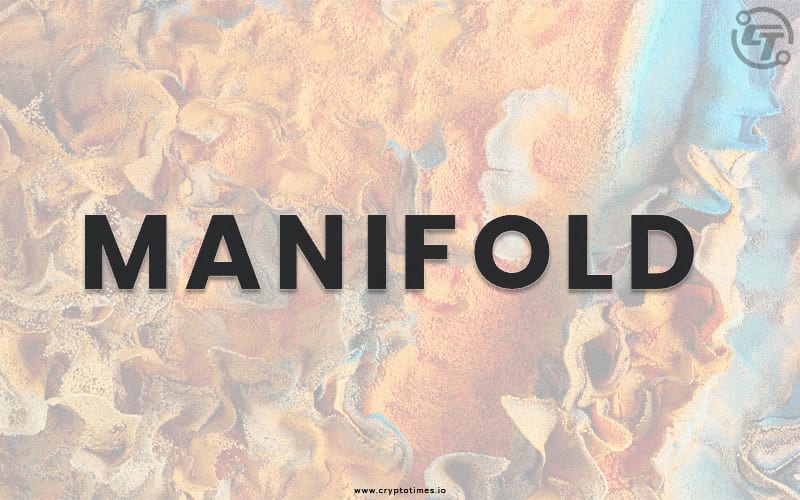In Brief:
- Manifold will give users fairly close control over the minting and authentication of NFTs they create.
- The company recently received a seed round of funding from well-known investors.
High-profile artists like pplpleasr or FVRENDER when wanting to create a non-fungible token (NFT), they’re increasingly turning to Manifold, a service that allows users near-total control over the process of minting and authenticating their unique creations.
Only a tiny group of elite crypto artists got access to the service when it was launched earlier this year. The company’s founders, on the other hand, launched “Manifold Studio” on Tuesday, which will allow anyone to mint NFTs “while keeping real ownership and provenance of your work.”
Manifold also announced on Tuesday that it has raised a seed funding round from two venture capital firms, Andreessen Horowitz (a16z) and Initialized Capital, both of which have made significant bets on crypto and the future web. The value of the deal was not disclosed, but Diep claims that the funding will allow the company to avoid charging artists for its services.
Although there are many sites that allow you to mint an NFT—OpenSea and Rarible are two of the most popular—Manifold claims to be unique in that it gives artists complete control over their work. Manifold promises that “the creator is the platform,” rather than relying on a third-party platform and all of the licencing obligations that come with it.
In reality, this means that Manifold has been working on new versions of the smart contracts that regulate an NFT’s ownership rights. Its smart contract, which was Manifold’s first offering, gives the NFT artist complete control over their work while also providing tools to adapt the NFT to new uses.
In particular, Manifold was used by the artist pplpleasr and Fortune to produce a particular subset of NFTs based on the magazine’s classic NFT cover. Using the service’s smart contract tools, they set it up such that customers with specific addresses would get an upgraded version of pplpleasr’s art, while those without those addresses would get a stripped-down version.
Statements and Claims by Eric Diep:
Eric Diep of Manifold stated in an interview that he and his co-founders want to help artists in moving beyond the so-called Web 2 model, in which a centralized platform retains final control over a piece of content—a system that requires the artist to rely on the platform not to remove or harm the content. In the meantime, the Web 2 model frequently allows third-party platforms to take a significant portion of an artist’s earnings.
While Web 3—a term coined by Diep and others to describe a world in which property and social interactions are managed by smart contracts—has a lot of potential for artists, it also has a lot of technical restrictions that prevent most people from adopting it.
Diep claims that the new Manifold Studios will make that world more accessible by allowing customers to deploy smart contracts without having to write any code. This is similar to what GeoCities, a website builder, and WordPress, a publishing platform, did for earlier incarnations of the web.
“The beauty and promise of Web 3 is the ‘ownable internet’,” Diep says, adding that the artists using Manifold’s tools—of which there are now fewer than 100—have already made more than $150 million in NFT sales.
Manifold isn’t focusing on an expected income strategy for the time being, according to Diep, but rather on attracting new users who will help develop new Web 3 experiences. He went on to say that Manifold’s goal is to always make its tools available for free to all users, but that the service is profitable due to partnerships with some of its users.
Although Manifold’s tools are designed for Ethereum, Diep claims that the service is “chain agnostic,” and that the company plans to adapt its smart contracts to other blockchains in the future.
Written statement by Chris Dixon:
Chris Dixon of a16z likened Manifold’s service to an “App Store” that allowed artists to purchase various pieces of code that allowed them to add additional elements to their work in a blog post. “The process of minting an NFT, as dramatic and competitive as it might be, is still a tiny part of the ownership experience. Provenance and creativity are what distinguishes a truly special NFT drop, and Manifold has worked thoughtfully to extend tools to artists to make their works stand out from the crowd,” Dixon penned the following.






